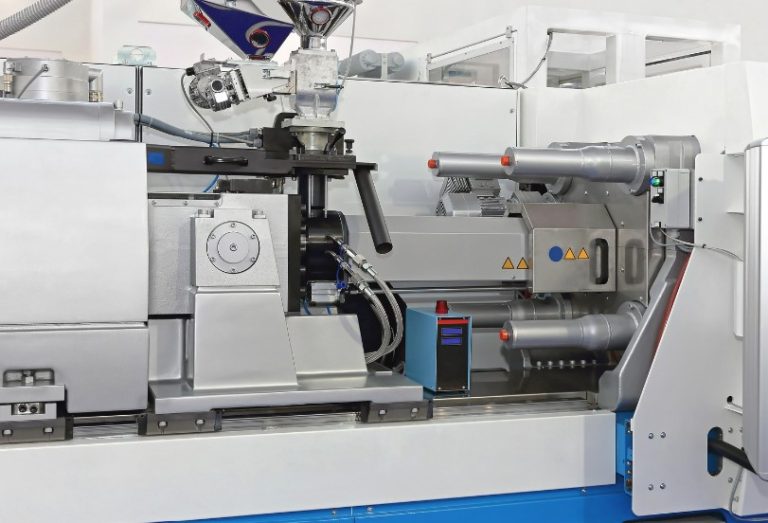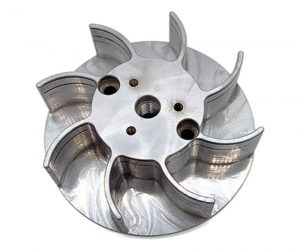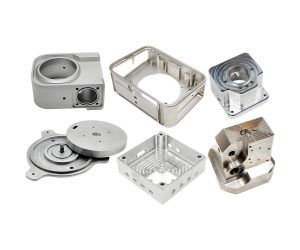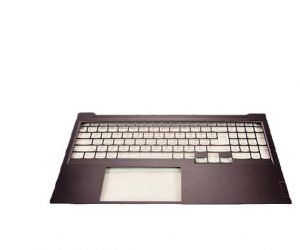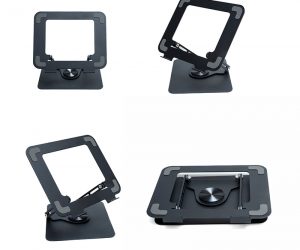Injection molding solution companies are super important in the manufacturing world. They offer a ton of services and know-how about injection molding. Let me break down what these companies do and how they can help:
- Know-How and Experience: Top injection molding companies have been around the block. They know all about different materials, mold designs, and ways to make stuff. This means they can give you the best options for your projects.
- Custom Solutions: These companies don't just do one-size-fits-all. They work closely with you to understand exactly what you need and make sure the final product is just right.
- Design and Engineering Help: Got a team of smart engineers and designers? Yep, these companies do. They help you tweak your product design to be easy on the wallet and simple to make.
- Prototyping and Testing: Before making loads of something, it's smart to test it out first. Many companies offer to make a sample so you can see if it works and make any changes needed.
- Picking the Right Material: Not all plastics are created equal. These companies know their stuff and can help you pick the best material for your job, considering things like strength, chemical resistance, and rules you need to follow.
- Making Molds: They can also design and build molds that fit your project perfectly.
- Making Parts: With fancy equipment and tech, they can make parts quickly and affordably.
- Quality Checks: Quality is key in injection molding. Good companies have strict checks to make sure every part is top-notch.
- Extra Services: Some even offer extras like putting parts together, printing on them, or packing them up.
- Going Green: More and more, these companies are thinking about the planet. They might recycle materials or use eco-friendly options to cut down on waste.
- Following Rules: If you're in tricky industries like medical or car manufacturing, these companies know all the rules and make sure your products pass muster.
- Great Customer Service: The best ones keep in touch, answer quickly, and stick to deadlines.
- Saving Money: They find ways to make production cheaper without skimping on quality.
When picking a company, think about their skills, what they can do, past successes, and how much they care about quality and keeping customers happy. The right partner can get your products made efficiently and to a high standard, no matter what industry you're in.
Looking for a trustworthy and budget-friendly way to make your product ideas come to life? Curious about the various injection molding techniques, what materials they use, and where they're applied?
Injection molding is super common in manufacturing. It's how they make all sorts of parts by heating up plastic until it melts, then shooting it into a mold. Once it cools down, it hardens into the shape you want. This method is great because it lets you make things just the way you like them, fast and without breaking the bank.
You’ve got options when it comes to injection molding. The most popular ones are thermoplastic and thermoset. Thermoplastics, like the kind used in everyday items, get soft when warmed up and harden again when they cool. That's what thermoplastic injection molding is all about. On the other hand, thermoset plastics, which are used in stuff that needs to be super strong or heat-resistant, soften when heated and turn rock-solid when they cool. That's thermoset injection molding for you.
Plus, injection molding isn't just for one thing; it's used all over the place. From making car parts to home gadgets, phone cases, and even medical equipment, this technique delivers quality parts quickly, accurately, and affordably.
What is injection molding and how does it work?
Injection molding is a manufacturing process that involves injecting molten plastic material into a mold cavity, where it cools and solidifies into the desired shape. Injection molding is one of the most widely used methods for producing plastic parts, especially for mass production.
The injection molding process consists of four main stages:
- Clamping: The mold is clamped shut by a hydraulic or mechanical force, creating a closed system.
- Injection: The plastic material is fed into a heated barrel, where it is melted and mixed by a rotating screw. The screw then pushes the molten plastic into the mold cavity through a nozzle, filling it under high pressure.
- Cooling: The plastic material cools and hardens inside the mold cavity, taking on the shape of the mold.
- Ejection: The mold is opened and the finished part is ejected by a mechanism or by compressed air.
The cycle time of injection molding depends on various factors, such as the size and shape of the part, the type and temperature of the material, and the design and quality of the mold. Typically, injection molding cycle times range from a few seconds to a few minutes.
What are the benefits and challenges of injection molding?
Injection molding offers many advantages for producing plastic parts, such as:
- High efficiency: Injection molding can produce large quantities of parts in a short time, with minimal waste and scrap.
- High accuracy: Injection molding can produce complex and intricate shapes with high dimensional accuracy and consistency.
- High quality: Injection molding can produce parts with smooth surfaces, fine details, and good mechanical properties.
- High flexibility: Injection molding can use a wide range of plastic materials, colors, and additives, as well as different mold designs and configurations.
However, injection molding also has some drawbacks, such as:
- High initial cost: Injection molding requires a high investment in designing and building the mold, as well as setting up and maintaining the equipment.
- High complexity: Injection molding involves many variables and parameters that need to be carefully controlled and optimized to ensure optimal results.
- High environmental impact: Injection molding consumes a lot of energy and generates a lot of plastic waste that needs to be recycled or disposed of properly.
What are the main types of injection molding processes and materials?
There are many variations of injection molding processes that differ in how the plastic material is injected into the mold cavity. Some of the most common types are:
- Conventional injection molding: The standard process described above, where the plastic material is injected through a single nozzle into a single cavity.
- Multi-cavity injection molding: A process where multiple cavities are arranged in a single mold, allowing for simultaneous production of multiple identical or different parts.
- Multi-component injection molding: A process where two or more different materials are injected into a single cavity, creating parts with different colors or properties.
- Insert molding: A process where a metal or plastic insert is placed into the mold cavity before injecting the plastic material, creating parts with embedded components.
- Overmolding: A process where a plastic material is injected over another plastic or metal part that has already been molded, creating parts with multiple layers or coatings.
There are also many types of plastic materials that can be used for injection molding, depending on their properties and applications. Some of the most common types are:
- Thermoplastics: Plastic materials that can be melted and solidified repeatedly without losing their quality. Thermoplastics are easy to process and recycle, but they tend to deform under high temperatures. Examples of thermoplastics are polyethylene (PE), polypropylene (PP), polystyrene (PS), polyvinyl chloride (PVC), nylon (PA), acrylonitrile butadiene styrene (ABS), polycarbonate (PC), etc.
- Thermosets: Plastic materials that undergo an irreversible chemical reaction when heated, forming a rigid network that cannot be remelted. Thermosets are resistant to heat and chemicals, but they are difficult to process and recycle. Examples of thermosets are epoxy resin (EP), phenolic resin (PF), polyester resin (UP), etc.
- Elastomers: Plastic materials that have rubber-like properties, such as elasticity, flexibility, and resilience. Elastomers can be stretched and compressed without permanent deformation, but they have low strength and stiffness. Examples of elastomers are silicone rubber (SI), polyurethane rubber (PU), natural rubber (NR), etc.
What are some of the best injection molding solution companies in the US and abroad?
There are many injection molding solution companies that offer high-quality services and products for various industries and applications. Here are some examples of reputable companies in the US and abroad:
- RYDTOOLING: A China-based company that specializes in manufacturing custom injection molds and molded parts for automotive, medical, consumer electronics, industrial, etc. RYDTOOLING has over 10 years of experience in injection molding and offers competitive prices, fast delivery, and excellent customer service.
- Crescent Industries: A USA-based company that provides custom injection molding solutions for medical/pharma/dental, military/defense, industrial/OEM applications. Crescent Industries has over 75 years of experience in injection molding
How to choose the right injection molding partner for your project?
Choosing the right injection molding partner for your project is a crucial decision that can affect the quality, cost, and delivery of your products. Injection molding is a complex process that requires specialized equipment, expertise, and experience. Therefore, you need to find a partner that can meet your specific needs and expectations.
Here are some factors to consider when choosing an injection molding partner:
- Capabilities: You need to make sure that your partner has the capabilities to handle your project size, complexity, and specifications. For example, do they have the right machines, molds, materials, and quality control systems? Do they offer any value-added services such as design assistance, prototyping, assembly, or packaging?
- Experience: You need to check the track record and reputation of your partner in the industry. How long have they been in business? What types of projects have they completed successfully? Do they have any certifications or accreditations? Do they have any testimonials or references from previous customers?
- Communication: You need to establish a clear and effective communication channel with your partner. How responsive are they to your inquiries and feedback? How do they handle changes or issues during the production process? How do they keep you updated on the status and progress of your project?
- Cost: You need to compare the pricing and terms of different injection molding partners. How do they charge for their services? Do they offer any discounts or incentives for volume orders or long-term contracts? Do they provide any warranties or guarantees for their products? Do they have any hidden fees or charges?
- Delivery: You need to evaluate the delivery performance and reliability of your partner. How fast can they complete your project? Do they have any lead times or minimum order quantities? Do they have any contingency plans in case of delays or disruptions? Do they ship to your location or destination?
By considering these factors, you can choose the right injection molding partner for your project and ensure a successful outcome.
